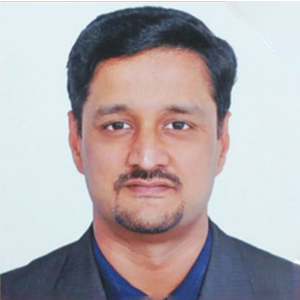Adaptation Of Academics Inline With Technological Pace
 Technology is fast changing. In its earlier days, technological change was illustrated with the 'Linear Model of Innovation', which has now been largely discarded to be replaced with a model of technological change that involves innovation at all stages of research, development, diffusion, and use. While disruptive innovation will typically attack a traditional business model with a lower-cost solution and over-take incumbent firms quickly, foundational innovation is slower, and typically has the potential to create new foundations for global technology systems over the longer term.
Technology is fast changing. In its earlier days, technological change was illustrated with the 'Linear Model of Innovation', which has now been largely discarded to be replaced with a model of technological change that involves innovation at all stages of research, development, diffusion, and use. While disruptive innovation will typically attack a traditional business model with a lower-cost solution and over-take incumbent firms quickly, foundational innovation is slower, and typically has the potential to create new foundations for global technology systems over the longer term.
Academics have their responsibility in offering courses that maintain a perfect balance between disruptive innovation and traditional business models. For instance:
1. Conventional RDBMS has changed to BIG DATA
2. Solid monolithic Architecture has now turned up into API based Architectures.
3. Single desktop UI models have been made remodeled to device based consumption models.
4. Cloud models have advanced over server-based on-premises deliveries
New programming languages and intelligence in technology trends are emerging very fast. There is a common perception existing in the society that University Education is not going in pace with the emerging software Industry. Academic Curriculum is always following its primitive ways of expelling the curriculum content. It's not very common that an industry expert asking for a revamp in Academic curriculum and academicians complaining about the lack of collaboration and the need to rely upon the software experts to collaborate and restructure the university curriculum.
On the other hand, the technology emerging is not so deeply rooted. They're springing up like mushrooms after the rain and goes off when newer technologies take its next step. Till now, not all programming languages have made their mark so pervasive in the industry as much as JAVA, C, and C++. RDBMS is there in almost all Academic programs for more than 4 decades, with emphasis given on Keys, Cardinalities, and relational tables. Lots of electives and Journals based on RDBMS are widely used in all branches of Engineering.
However, today Big Data changes the paradigms of RDBMS in most of the cases. The fundamental principles of Big Data include demoralization of data, compression techniques of tables and absolutely no need of buffering for any kind of DB access. The traditional education of RDBMS should be unlearnt in the industry today to deal with the latest Hadoop based architectures. In the era of Big Data, it is vital to teach the students of next generation, the basic principles of RDBMS however still expose them to file-based/latest in-memory storage systems. For a reasonable time, each student needs to cope up with RDBMS and big data concepts together, till one of it completely fades out.
Similarly, another example is the cloud-based technology that is built with DevOps methodologies. The academics which were emphasizing on waterfall and prototype methodologies need to adopt the latest trends in the industry and develop a cloud-based mindset for the upcoming generations.
How do we achieve the equilibrium of academics vs. technology pace?
The best solution would be to have stable curriculum content devised by industry experts and a set of electives that are chosen from a catalog built by technical experts from all over the world. The course content should be revised with experimental learning and industry value prototypes. The major dissimilarities are:
1. Universities teach UI technologies whereas industries teach user experience (UX) designs.
2. Universities bring in syntax and coding constructs as their learning.
3. Academics aim at single application architecture examples that have a very little scope of integration whereas industry at expertise in modeling enterprise system which are heterogeneous in nature and drives large business processes.
The curriculum needs to have a perfect blend of all these which build not only fundamentals in students but also a foresight and a vision for embracing the new technologies. Collaboration programs between universities and software industries should be a regular cycle and should be mutually rewarding. Although many of the leading software giants have established a university alliance program, still there is a long way to go for a perfect marriage between academics and industry trends.
Krishna Kumar
Having an extensive experience of 17 years in the Software industry, Krishna Kumar is proud and passionate about the journey from a Developer to Director in the same organization (SAP LABS INDIA PVT. LTD), specializing in Product design, Application integration, and enterprise architecture. He is also well versed in Product Development, Project Management, delivery management and support and maintenance.

